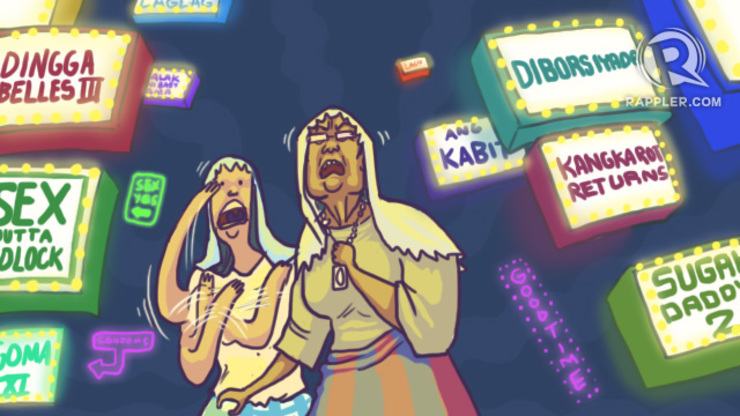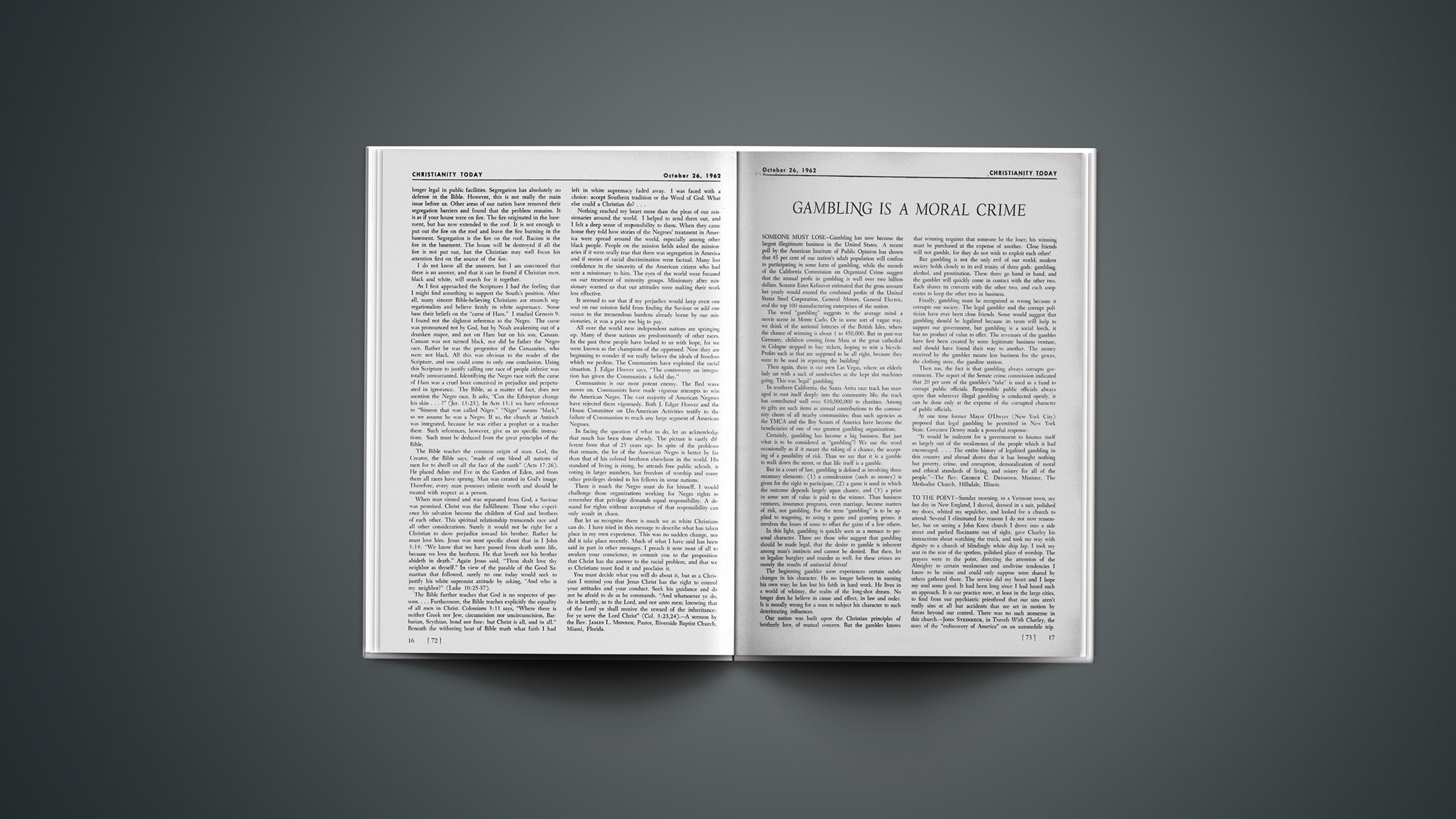Is Gambling Morally Right
The answer to the question, “is gambling ethically wrong”, can be answered in a simple yes or no if one looks no further than surface. Either a person agrees that gambling is wrong or they don’t. However, if the question is broken down and ask by each activity, such as the lottery, poker, football pools, etc., each person asked will give a different opinion.
To begin a discussion about the ethical dilemmas surrounding gambling, one needs to know the definition of gambling. A simplified version of definitions given by numerous dictionaries is to make a wager on an uncertain outcome for the gain of money or property. When the word gambling is mentioned,Las Vegas immediately comes to mind. The casinos with poker tables, slot machines, and roulette wheels are the visual image that most people get when discussing gambling.



GUEST ARTICLE Is Gambling a Moral Issue? Michael Fitzgerald is an award-winning columnist for The Record, a leading newspaper for the north-central region of the sprawling San Joaquin Valley Stockton, California. Some time ago, he penned an article addressing the growing encroachment of gambling casinos in California. While gambling casinos generally are not legal in California, in recent. Of course, conservative Christians don’t support gambling because they see gambling as immoral, so they want it illegal. These Christians also see drunkenness as immoral and so, if they could, the reasoning goes, they’d be right back at Prohibition. But gambling isn’t merely a “values” issue. Mohler makes no bones about it and gets right to the heart of the matter morally and ethically by identifying it as the “sin of greed.” “The Bible is clear on this issue,” he writes in a recent online post. “The entire enterprise of gambling is opposed to the moral worldview revealed in God’s Word. It also cited to Matter of G, 1 I&N Dec. 59, 61-62 (BIA, AG 1941), where the Board had explained that, because gambling is “not generally regarded as morally wrong or corrupt, as offensive to the moral sense as ordinarily developed,” it is not typically a crime involving moral turpitude. There are four key reasons I find this to be true-any of which probably de-justifies casinos from a Kantian perspective: 1) The prey on the vulnerable and their addictions. 2) Casinos favor the house. Its meant to be a losing scenario for the customer.
Unfortunately, tied to this image, for most of the church going crowd, are prostitution, drugs, and the mafia. Organized religious groups, who fronts most of the opposition to legalized gambling, use these images along with the stories about good hard working Christians who loose everything after being lured into gambling. What these religious groups fail to realize is that some of them are guilty of promoting and practicing gambling. By definition, the Bingo games and raffles held by many churches are gambling. A person is paying for the opportunity to win money or property worth more than their monetary stake. While this is not a poker game in a smoke filled back room of a bar, it is still by definition just as sinful and unethical. Even though they use the money earned for a good purpose, it does not alleviate the church of the responsibility for the violation of the ethics about which they preach so loudly. While I realize this is not the popular opinion, the rules of the Bible are quite clear, right is right and wrong is wrong. There is no grey area. The state law however sees it differently, as Bingo and raffles are legal inAlabama.
Is it right for the state or the church to split hairs and decide some gambling is tolerable while some is not? There is a clear line drawn for what is legal and what is illegal, but there is no clear line about what is ethical and what is not ethical. This lies within the mind of the person asked. A person may be against all forms of gambling but still participate in an office football pool. Does this make the person a hypocrite? Again, this lies in the mind of the participant. To go even further, what about a bet between two friends for a soda or who pays for lunch. This may seem harmless but, if one believes gambling to be wrong, is still unethical.


Is Gambling Morally Right Act
My personal feelings are that each person has to decide their path in life and what they feel is right and wrong ethically. While I may not think there should be casinos on every corner of the state, I do not judge those who decide to gamble at a casino any more harshly than I do those who play bingo or buy raffle tickets. After all, they are all gambling.